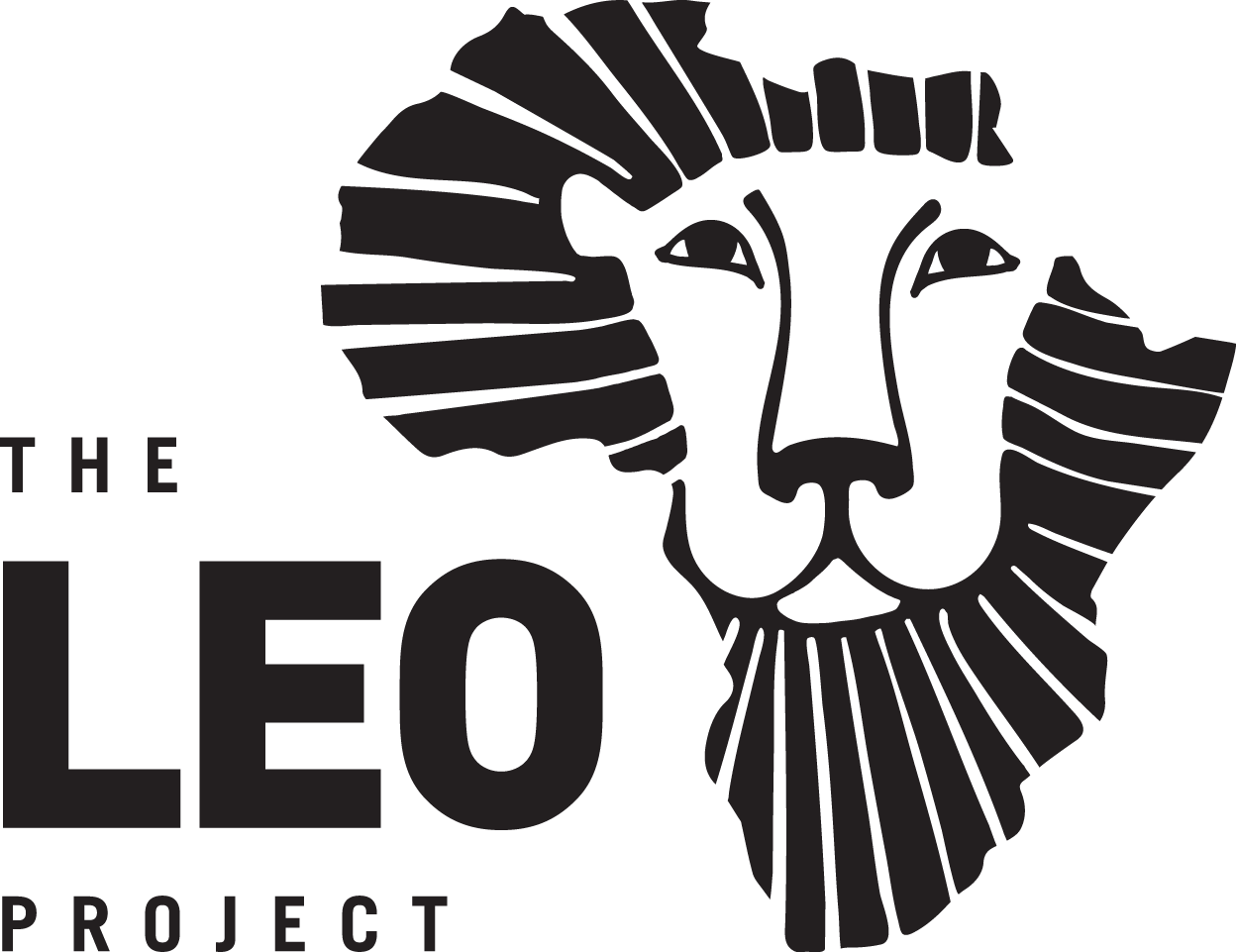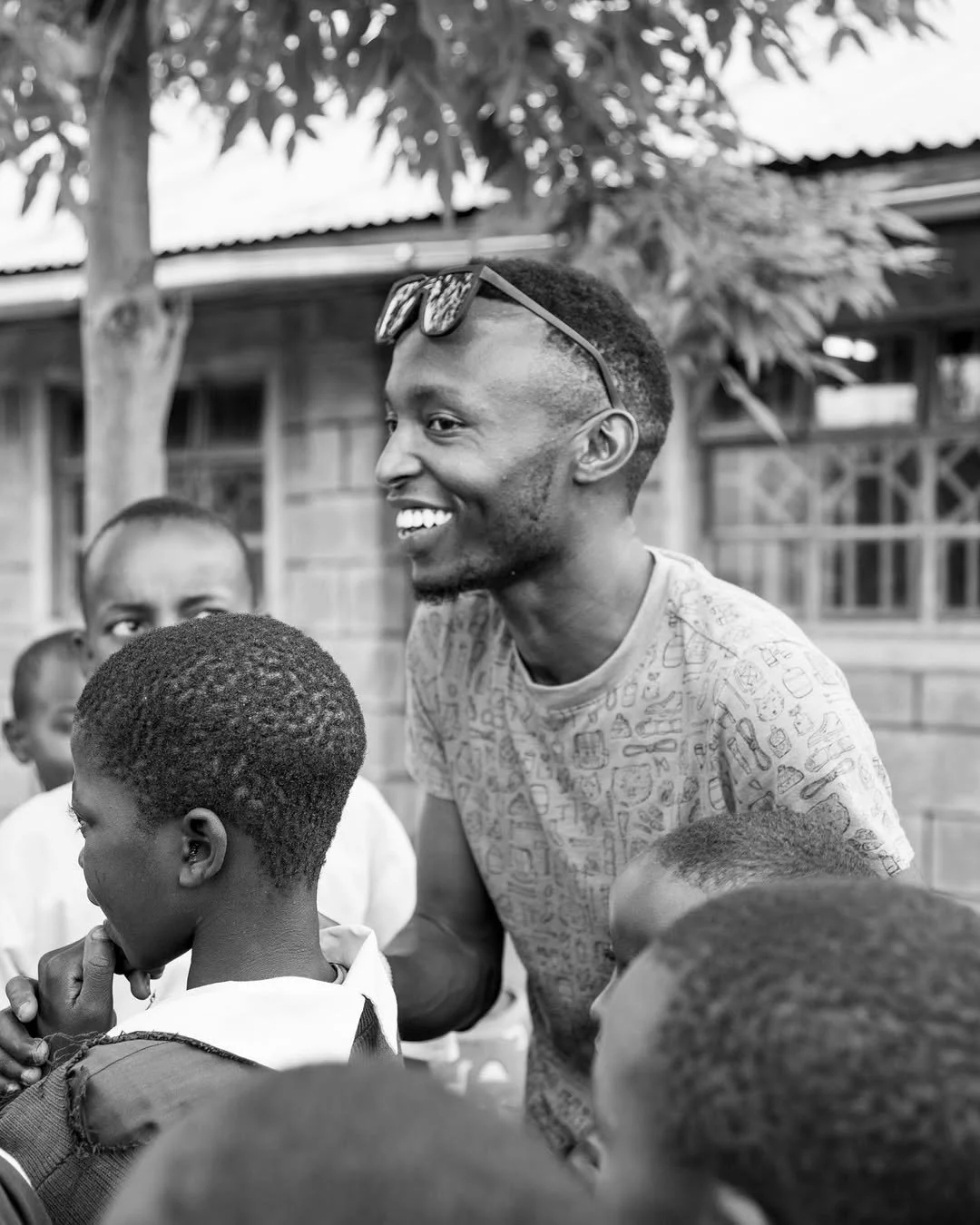Meet Kelvin Maina: Building Systems and Strengthening Communities
As Chief of Staff at The Leo Project, Kelvin Maina ensures that operations, strategy, and programs align with the organization’s broader vision for growth and impact. His work bridges daily execution with long-term planning, combining data-driven systems thinking with a deep belief in community-centered change.
For Kelvin, that vision is personal. He grew up in Laikipia County, not far from where The Leo Project now operates. Many days, as he walks through The Caitlin O’Hara Community Health Clinic, he recognizes familiar faces coming for care that was once out of reach. “I’ve been seeing people coming here and they know me from childhood,” he says. “Seeing people I grew up with use this facility and return again and again is encouraging.”
Kelvin with students
Education holds equal meaning for Kelvin. Growing up, he remembers first using a computer in fourth grade. Today, he watches students in rural Laikipia confidently coding, exploring the internet, and building robots. “Our education programs are focused on things that are not commonly offered in Kenyan classes,” he explains. “Seeing kids accessing the internet at a very young age, and how much they learn, excites me.” For him, this progress represents opportunity: young people gaining tools that can shape their futures and, in time, their communities. “Even if you reach just a few students, and some of them return to the community, that’s how I see real, long-term change; people learning, coming back, and keeping that knowledge in the community.”
Kelvin’s commitment to public health is grounded in lived experience. Growing up, he saw families forced to travel long distances for unreliable care or treat their own ailments. Those early observations shaped his determination to build systems that are accessible, equitable, and trusted. He has also seen how healthcare infrastructure often lags behind population growth, and how years of inadequate service have eroded public confidence. Rebuilding that trust, he believes, begins with respect, consistency, and community participation. Central to his philosophy is systems thinking, and the understanding that healthcare cannot exist in isolation but must be connected to education, infrastructure, and community life.
Global Learning, Local Impact
In 2025, Kelvin completed the Global Health Delivery Intensive (GHDI) program through the Harvard T.H. Chan School of Public Health, an experience that refined how he thinks about systems and service delivery. While healthcare systems are often designed centrally, Kelvin says that the program emphasized that what truly matters is how care reaches people and how it’s received.
The GHDI program brings together health professionals from around the world to strengthen how health systems are designed, managed, and measured. Offered each July, the six-week program includes three courses: Introduction to Global Health Care Delivery, Epidemiological Methods for Global Health, and Management Practices in Health Care Delivery, all taught by experts and thought-leaders from around the world. Through case studies, data analysis, and strategy exercises, participants learn to design efficient, equitable, and sustainable health programs across diverse contexts.
Kelvin said he was particularly drawn to the systems-thinking and implementation science units, where he and his classmates analyzed case studies of hospitals and community programs that had overcome barriers to care. Through these sessions, he learned how process mapping, data analysis, and collaboration can strengthen even the most resource-limited systems, much like the one in which The Leo Project operates.
“Designing healthcare the way it should be given to the community, that’s what excites me.”
Equally impactful was the epidemiology course, which taught him to see data not as numbers but as stories that reveal community needs and guide better decisions. “It helped me understand that you don’t just collect data for reporting,” he says. “You collect it to ask questions, to understand what’s changing and why.” At The Leo Project, Kelvin has applied these insights to refine programs, evaluate outcomes, and use data to drive improvement, specifically when it comes to our Electronic Medical Records (EMR) system.
Kelvin explains that his experience at GHDI affirmed what he had already learned through practice: effective healthcare is not just about building facilities but about ensuring that systems function efficiently and equitably from the ground up.
Building Systems for the Future
As The Leo Project prepares to expand The Caitlin O’Hara Community Health Clinic into a full in-patient maternal and oncology hospital, Kelvin is energized by the challenge. He sees the expansion not just as a construction project but as an opportunity to design a model of healthcare that is efficient, sustainable, and replicable.
He envisions systems where technology supports coordination, workflows are intuitive, and every process, from patient intake to recordkeeping, strengthens the quality of care. Reflecting on this next phase, Kelvin says, “If we build something good, guided by strong systems, it will outlast us. It will still carry the same vision and mission. Designing healthcare the way it should be given to the community, that’s what excites me.”
Your support creates lasting change. We hope you’ll consider making a donation.

